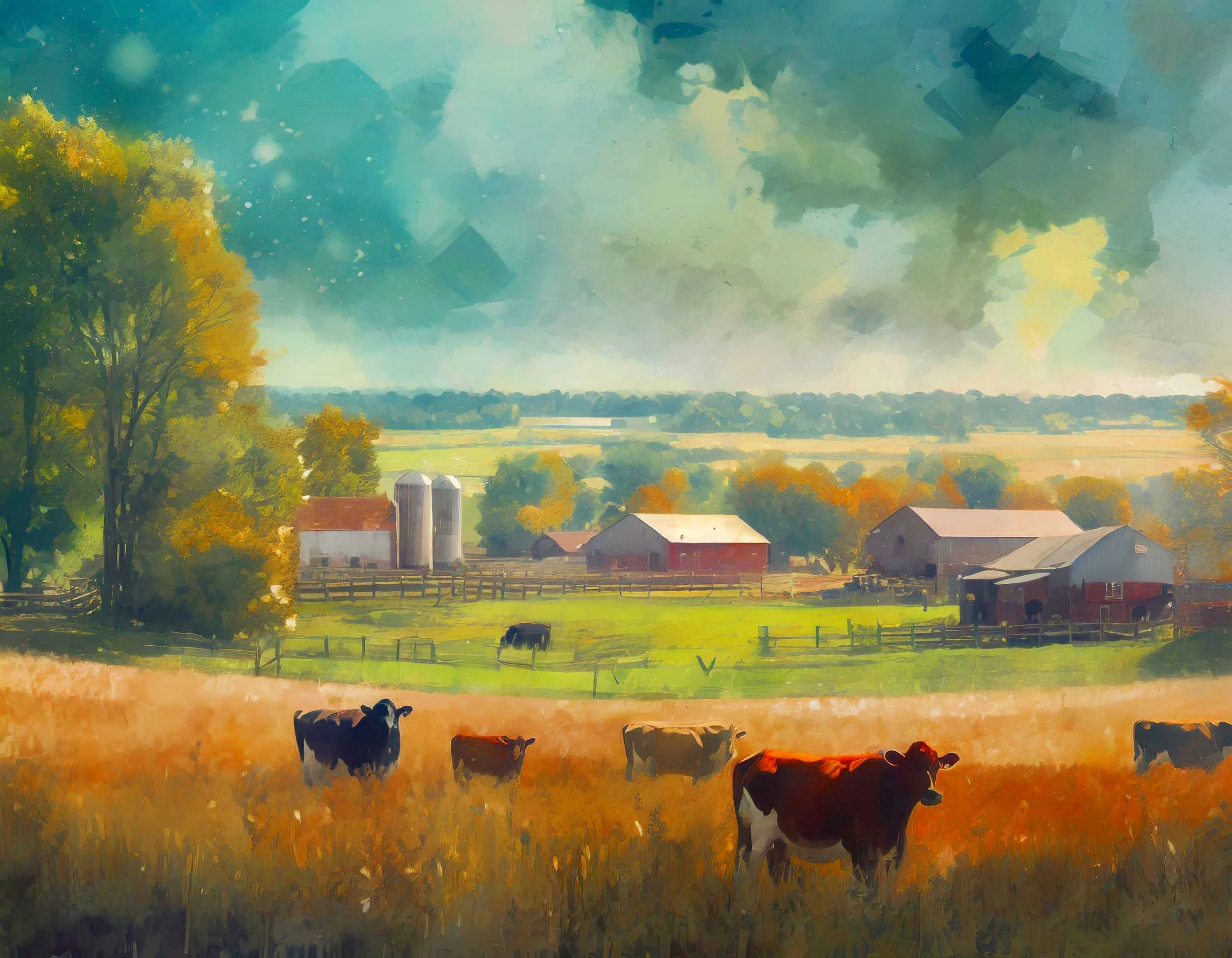
Sustaining Our Home
Preserving small family farms
Did you know that nearly half the milk on dairy shelves is produced on mega-farms with 1,000 or more cows, where the animals may be kept kept in unhealthy spaces, and chemicals that can harm the environment are routinely used ?
In contrast, small family farms—like the ones that produce OPE! I Found A Better Milk™— use eco-friendly farming methods. Small family farmers not only take care of their cows, they work to protect the soil, the water, and the air we breathe.
Cleaner air
To improve air quality, small family farms reduce or eliminate the use of synthetic pesticides and fertilizers, lowering air pollution and greenhouse gas emissions. Agroforestry integrates trees and shrubs into farmland, absorbing carbon dioxide and reducing wind erosion. Methane control practices like improved feed efficiency and manure management help reduce greenhouse gas emissions.
Healthier soil
Crop rotation and diversity prevent soil depletion and improve fertility, while cover cropping prevents erosion and adds organic matter. No-till farming minimizes soil disturbance, preserving soil structure and moisture, and composting enhances soil nutrients and moisture retention.
Purer water
Water quality and conservation are also priorities on small family farms. Efficient irrigation methods such as drip irrigation save water and prevent runoff. Buffer strips and riparian zones (the space between land and streams) are planted with vegetation to filter pollutants and improve water quality. Rainwater harvesting reduces dependence on groundwater, and careful nutrient management prevents fertilizer runoff, protecting aquatic ecosystems.
Supporting local communities
Family-owned dairy farms play a vital role in sustaining rural areas. By choosing milk from small farms, you’re helping preserve family businesses and promoting local food purchases. Your support can have a ripple effect, boosting local economies and strengthening community ties.
Did you know that nearly half the milk on dairy shelves is produced on mega-farms with 1,000 or more cows, where the animals may be kept kept in unhealthy spaces, and chemicals that can harm the environment are routinely used?
In contrast, small family farms—like the ones that produce Ope! I Found A Better Milk™— use eco-friendly farming methods. Small family farmers not only take care of their cows, they work to protect the soil, the water, and the air we breathe.
Cleaner air
To improve air quality, small familly farms reduce or eliminate the use of synthetic pesticides and fertilizers, lowering air pollution and greenhouse gas emissions. Agroforestry integrates trees and shrubs into farmland, absorbing carbon dioxide and reducing wind erosion. Methane control practices like improved feed efficiency and manure management help reduce greenhouse gas emissions.
Healthier soil
Crop rotation and diversity prevent soil depletion and improve fertility, while cover cropping prevents erosion and adds organic matter. No-till farming minimizes soil disturbance, preserving soil structure and moisture, and composting enhances soil nutrients and moisture retention.
Supporting local communities
Family-owned dairy farms play a vital role in sustaining rural areas. By choosing milk from small farms, you’re helping preserve family businesses and promoting local food purchases. Your support can have a ripple effect, boosting local economies and strenthening community ties.
Won’t you join us?
Next time you're at a supermarket that carries OPE! I Found A Better Milk,™ think about where your milk comes from. Your support means everything to small family farmers—together we can keep them going strong.
Purer water
Water quality and conservation are also priorities on small family farms. Efficient irrigation methods such as drip irrigation save water and prevent runoff. Buffer strips and riparian zones (the space between land and streams) are planted with vegetation to filter pollutants and improve water quality. Rainwater harvesting reduces dependence on groundwater, and careful nutrient management prevents fertilizer runoff, protecting aquatic ecosystems.





